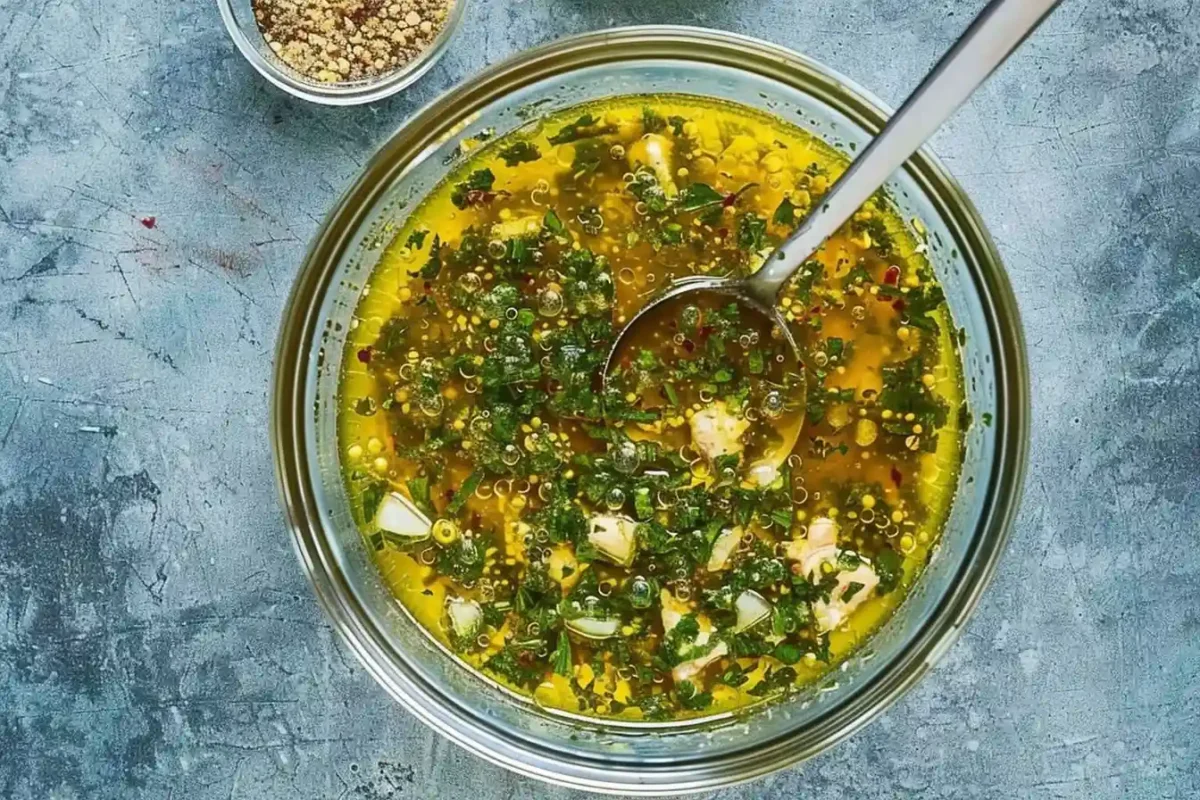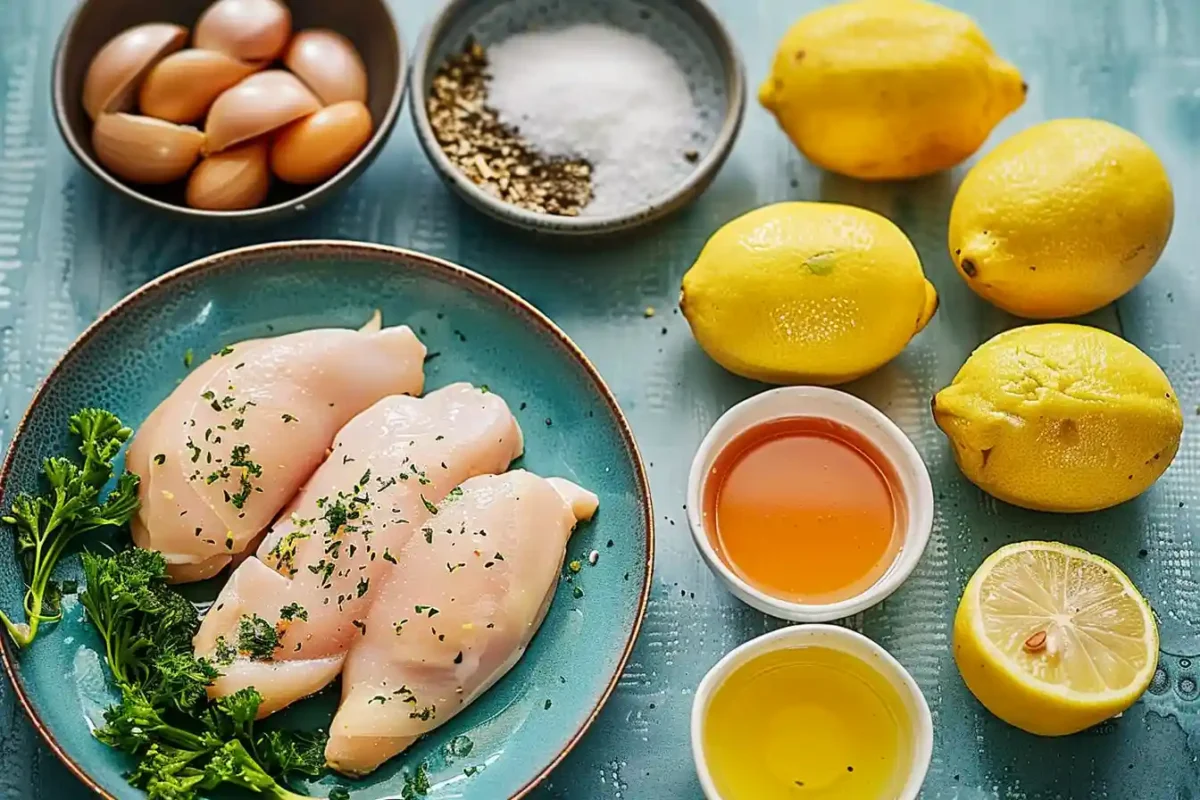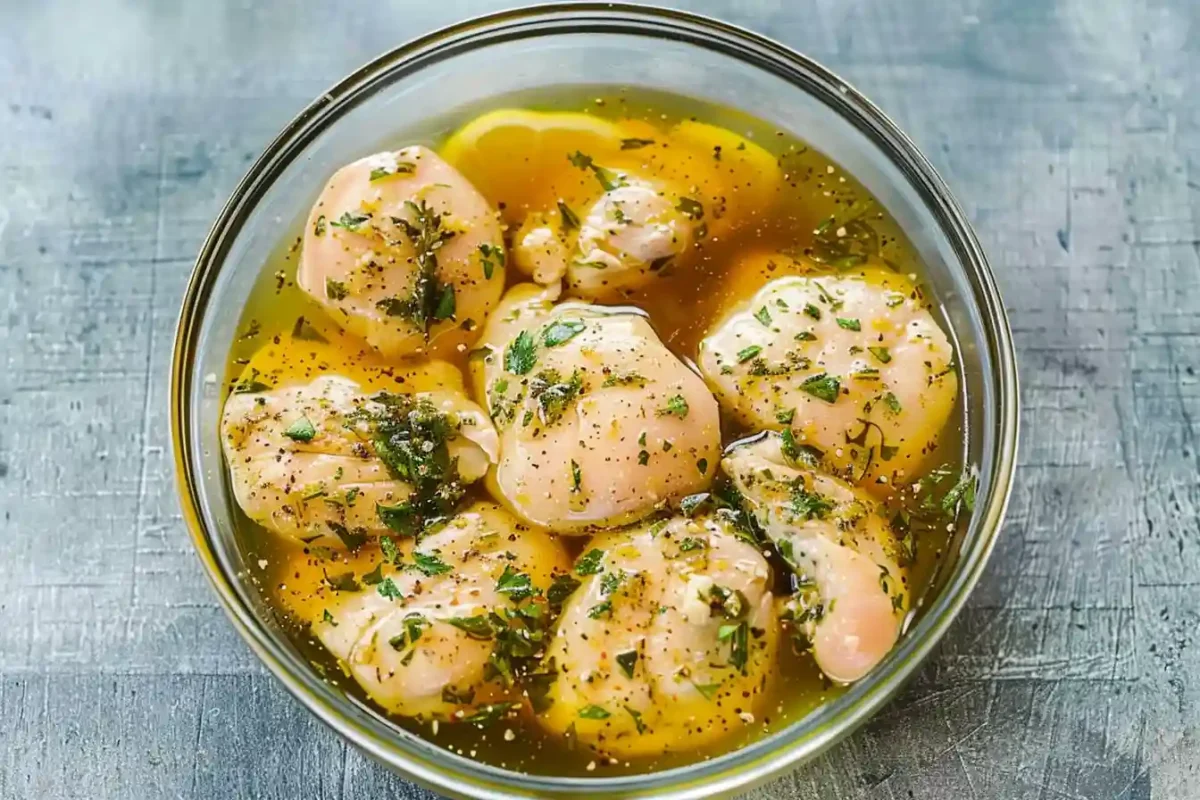There’s something undeniably refreshing about the combination of tangy lemon juice and succulent chicken. Whether you’re a seasoned chef or an amateur cook looking to spice up your kitchen repertoire, Lemon Juice Chicken is a dish that promises to tantalize your taste buds and leave you craving more. This zesty recipe has become a staple in kitchens worldwide, celebrated for its simplicity, versatility, and vibrant flavors. In this article, we’ll dive deep into the world of Lemon Juice Chicken—its origins, preparation methods, nutritional benefits, and how you can elevate it to suit your palate. Let’s get started!
“A squeeze of lemon transforms ordinary chicken into an extraordinary culinary experience.”
Jump to:
The Origins of Lemon Juice Chicken
Lemon Juice Chicken traces its roots back to Mediterranean and Middle Eastern cuisines, where lemons have long been used as a natural preservative and flavor enhancer. Historically, sailors carried lemons on their voyages to prevent scurvy, while chefs utilized them to add brightness to otherwise heavy dishes. Over time, this simple yet effective pairing of citrus and poultry evolved into what we now know as Lemon Juice Chicken.
Today, variations of this dish can be found across cultures, from Italian-style grilled lemon chicken to Moroccan-inspired tagines with preserved lemons. Each region adds its unique twist, but the core idea remains the same: harnessing the power of fresh lemon juice to infuse chicken with irresistible flavor.
| Region | Popular Variation |
|---|---|
| Italy | Grilled Lemon Chicken with Herbs |
| Greece | Souvlaki with Lemon Sauce |
| Morocco | Preserved Lemon Chicken Tagine |
| Mexico | Lemon-Lime Chicken Tacos |
Why Lemon Juice Chicken is a Must-Try Dish
If you haven’t already tried Lemon Juice Chicken, here are five compelling reasons why you should:

- Simple Yet Sophisticated : With just a handful of ingredients, you can create a dish that feels gourmet-worthy.
- Versatile Pairings : Serve it with rice, pasta, salad, or even flatbread—it complements almost any side dish.
- Health Benefits : Lemons are packed with vitamin C, antioxidants, and anti-inflammatory properties, making this dish not only delicious but also nutritious.
- Quick Preparation Time : Most recipes require minimal prep work, perfect for busy weeknights or spontaneous gatherings.
- Customizable Flavors : Add garlic, herbs, spices, or hot sauce to tailor the dish to your liking.
As celebrity chef Jamie Oliver once said, “Lemon is like magic—it elevates everything it touches.” And when paired with tender chicken, the results are nothing short of magical.
Key Ingredients for Perfect Lemon Juice Chicken
To achieve the ultimate Lemon Juice Chicken, you’ll need the following essential ingredients:
- Chicken Breasts or Thighs : Choose boneless, skinless cuts for ease of cooking and faster preparation.
- Fresh Lemons : Opt for organic lemons if possible; they provide the best flavor and aroma.
- Olive Oil : Extra virgin olive oil enhances the richness of the dish without overpowering the lemon zest.
- Garlic : Fresh minced garlic adds depth and complexity to the marinade.
- Herbs : Common choices include thyme, rosemary, oregano, and parsley.
- Salt and Pepper : These basics ensure a well-balanced seasoning profile.
- Optional Additions : Consider incorporating honey, Dijon mustard, or red pepper flakes for extra flair.
Here’s a quick breakdown of the quantities typically used in a standard recipe:
| Ingredient | Quantity |
|---|---|
| Chicken Breasts | 4 (boneless, skinless) |
| Fresh Lemons | 3 |
| Olive Oil | 2 tablespoons |
| Minced Garlic | 2 cloves |
| Fresh Thyme | 1 teaspoon |
| Salt | To taste |
| Black Pepper | To taste |

Step-by-Step Guide to Making Lemon Juice Chicken
Ready to whip up a batch of Lemon Juice Chicken? Follow these easy steps:
Step 1: Prepare the Marinade
In a mixing bowl, combine the juice of three fresh lemons, two tablespoons of olive oil, minced garlic, fresh thyme, salt, and black pepper. Whisk until fully combined.
Step 2: Marinate the Chicken
Place the chicken breasts or thighs in a shallow dish and pour the marinade over them. Ensure each piece is evenly coated. Cover the dish with plastic wrap and refrigerate for at least one hour—or overnight for deeper flavor penetration.
Step 3: Cook the Chicken
Preheat your grill, oven, or skillet based on your preferred method. Here’s a guide for each option:
- Grilling : Grill the chicken over medium heat for 6–8 minutes per side, or until cooked through.
- Baking : Place the marinated chicken on a baking sheet lined with parchment paper and bake at 375°F (190°C) for 20–25 minutes.
- Pan-Seared : Heat a tablespoon of olive oil in a skillet over medium-high heat. Sear the chicken for 5–7 minutes per side, turning occasionally.
Step 4: Rest and Serve
Let the chicken rest for a few minutes before slicing. Garnish with fresh parsley or additional lemon wedges for presentation.
“Marinating is key to unlocking the full potential of Lemon Juice Chicken. Don’t rush this step!”
Nutritional Benefits of Lemon Juice Chicken
Beyond its delectable taste, Lemon Juice Chicken offers several health advantages:
- Rich in Vitamin C : Lemons boost immunity and support collagen production.
- Low in Calories : This dish is light and satisfying, making it ideal for weight management.
- High-Quality Protein : Chicken provides essential amino acids necessary for muscle repair and growth.
- Anti-Inflammatory Properties : Both lemons and herbs contain compounds that reduce inflammation.
For those counting macros, here’s a rough estimate of the nutritional content per serving:
| Nutrient | Amount Per Serving |
|---|---|
| Calories | 250 |
| Protein | 35g |
| Fat | 10g |
| Carbohydrates | 5g |
| Fiber | 1g |
Variations and Creative Twists
While the classic Lemon Juice Chicken recipe is hard to beat, there’s always room for experimentation. Here are some ideas to inspire your next culinary adventure:
- Spicy Kick : Incorporate cayenne pepper or chili flakes for a fiery twist.
- Asian Fusion : Swap out traditional herbs for ginger, soy sauce, and sesame oil.
- Mediterranean Style : Add capers, Kalamata olives, and feta cheese for a salty tang.
- Dessert Inspiration : Use leftover marinade as a base for lemon-infused desserts like sorbet or cake.
Middle Eastern and African Adaptations
As we move eastward, Lemon Juice Chicken takes on a more aromatic character in Middle Eastern and African cuisines. Here, spices such as cumin, turmeric, and cinnamon join forces with lemon juice to create layers of flavor that tantalize the senses. Moroccan tagines, for instance, often feature preserved lemons—a unique ingredient created by curing fresh lemons in salt and their own juices. These preserved lemons add depth and complexity to stews and braises, transforming ordinary chicken into an extraordinary delicacy.
In Africa, Lemon Juice Chicken reflects regional diversity. Ethiopian cooks spice up the dish with berbere, a fiery blend of chili peppers, garlic, and ginger, while South Africans enjoy grilled chicken skewers marinated in lemon juice and herbs, perfect for outdoor braais (barbecues). Each adaptation tells a story of local traditions and available ingredients, showcasing how versatile this dish truly is.

Middle Eastern and African Variations:
- Morocco : Preserved Lemon Tagine – Rich, salty tang complements tender chicken.
- Ethiopia : Berbere-Spiced Lemon Chicken – Fiery heat meets citrus brightness.
- South Africa : Braai Chicken Skewers – Perfect for casual gatherings and celebrations.
To enhance the flavor of your dish, pair your marinated chicken with a delicious homemade sauce. Learn more about what lemon chicken sauce is made of and how to prepare it perfectly!
Asian Inspirations and Global Fusion
Though citrus fruits may not dominate Asian cuisines as they do in Western traditions, Lemon Juice Chicken still finds its place through creative adaptations. Thai cooks substitute lime for lemon, pairing it with fish sauce, garlic, and chilies to craft vibrant stir-fries. Indian recipes incorporate amchur powder (dried mango powder) alongside lemon juice, creating a sweet-and-sour marinade ideal for tandoori-style cooking. Even in Japan, yuzu—a type of citrus fruit native to East Asia—is sometimes used to infuse dishes with floral, citrusy notes.
Globalization has further expanded the reach of Lemon Juice Chicken, allowing chefs to experiment with cross-cultural influences. Modern fusion dishes combine techniques and flavors from around the world, ensuring that this classic recipe continues to evolve and inspire. Whether you’re enjoying a traditional version or a contemporary twist, Lemon Juice Chicken remains a testament to humanity’s shared love for delicious food.
Asian and Global Fusion Highlights:
- Thailand : Lime-Based Stir-Fry – Zesty kick with a hint of spiciness.
- India : Amchur Powder Marinade – Sweet-and-sour profile enhances chicken.
- Japan : Yuzu-Infused Dishes – Floral aroma adds elegance to simple meals.
Common Mistakes to Avoid
Even the most experienced cooks encounter pitfalls along the way. Here are a few common mistakes to watch out for:
- Overcooking the Chicken : This leads to dry, tough meat. Always check internal temperature using a meat thermometer.
- Using Bottled Lemon Juice : Fresh lemons yield superior flavor compared to store-bought alternatives.
- Skipping the Marinade : Without proper marination, the chicken may lack depth and juiciness.
- Neglecting Seasoning : Balance is crucial—don’t shy away from adding enough salt and pepper.
Looking for a delicious way to use your marinated chicken? Try this Lemon Chicken Pasta Recipe for a perfect combination of tangy and savory flavors!
Conclusion and Final Thoughts
Lemon Juice Chicken stands as a testament to the power of simplicity in cooking. By combining fresh ingredients and thoughtful preparation techniques, you can create a dish that delights both novice cooks and seasoned gourmands alike. Its adaptability ensures endless possibilities, whether you’re aiming for a quick weeknight meal or an elegant dinner party centerpiece.
As you embark on your own Lemon Juice Chicken journey, remember that experimentation is half the fun. Feel free to tweak the recipe to match your preferences and share your creations with friends and family.
Call to Action
Hungry for more? Head over to our blog for additional recipes, cooking tips, and food inspiration. Don’t forget to subscribe to our newsletter so you never miss a post! Share your Lemon Juice Chicken photos on social media and tag us—we’d love to see your masterpieces. Happy cooking!

